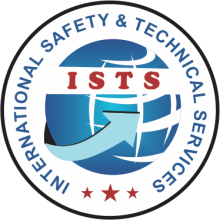ISO Certification
- Home
- Training Programs
- ISO Certification
Dive Into the World of ISO Standards
and Elevate Your Organization's Performance
and occupational health and safety excellence with our comprehensive ISO certification courses.
ISO 9001 Quality Management System
Overview: This is the process of preparing documentation and implementing procedures to achieve ISO 9001 Quality Management System (QMS) certification. It involves creating a framework of documented processes and procedures to ensure consistent quality in products and services, meeting ISO 9001 standards. Achieving ISO 9001 certification demonstrates your commitment to quality management, enhances customer satisfaction, improves efficiency, reduces errors, and increases credibility in the marketplace. Typically, this involves collaboration between management, quality assurance teams, and relevant stakeholders within the organization.
Benefits:
– Enhanced customer satisfaction
– Improved process efficiency and effectiveness
– Better risk management and decision-making
– Increased market competitiveness and credibility.
– Opportunities for continuous improvement and innovation.
ISO 14001 EMS
Overview: ISO 14001 EMS focuses on managing the environmental aspects of an organization’s activities, products, and services. It involves establishing a framework to identify, control, and improve environmental performance. Implementing ISO 14001 demonstrates your commitment to environmental responsibility, helps reduce environmental impacts, ensures compliance with regulations, and enhances your reputation among stakeholders. This process involves collaboration among management, environmental experts, and relevant personnel responsible for environmental management within the organization.
Benefits:
– Reduced environmental footprint
– Compliance with environmental regulations and laws.
– Enhanced reputation and stakeholder trust
– Opportunities for innovation and competitive advantage
– Better risk management related to environmental issues.
ISO 14001 OHSMS
ISO 45001 is an international standard for occupational health and safety management systems. It provides a framework to identify, control, and mitigate health and safety risks in the workplace.
Implementing ISO 45001 demonstrates your commitment to employee health and safety, reduces workplace accidents and injuries, ensures legal compliance, and enhances organizational resilience.
This process requires collaboration among management, health and safety professionals, employees, and relevant stakeholders involved in health and safety management within the organization.
Benefits:
– Improved workplace safety culture
– Reduced accidents, injuries, and occupational illnesses
– Compliance with legal and regulatory requirements
– Enhanced employee morale and productivity
– Strengthened reputation and stakeholder trust
ISO 22000 FSMS
Overview: ISO 22000 is an international standard for food safety management systems. It provides a framework for identifying, preventing, and mitigating food safety hazards to ensure the safety of food products. Implementing ISO 22000 demonstrates your commitment to food safety, enhances consumer confidence, ensures compliance with regulatory requirements, and helps prevent foodborne illnesses. This process requires collaboration among management, food safety experts, quality assurance professionals, and relevant personnel involved in food production, processing, and distribution within the organization.
Benefits: – Enhanced food safety and quality
– Reduced risk of foodborne illnesses and product recalls
– Compliance with regulatory requirements and industry standards
– Improved market access and competitiveness
– Enhanced customer satisfaction and trust
ISO 22301 BCMS
Overview: It involves developing and implementing procedures to ensure your organization can effectively ISO 22301 is an international standard for business continuity management systems. It provides a framework for identifying potential threats to an organization and implementing measures to ensure business continuity in the event of disruptions. Implementing ISO 22301 demonstrates your commitment to resilience, reduces the impact of disruptions on business operations, enhances stakeholder confidence, and protects the organization’s reputation. This process involves collaboration among management, risk management professionals, IT specialists, and relevant personnel responsible for business continuity planning and response within the organization.
Benefits:
– Improved resilience and ability to withstand disruptions
– Reduced downtime and impact on critical business functions
– Compliance with regulatory requirements and stakeholder expectations
– Enhanced reputation and stakeholder trust
ISO 50001 EnMS
Overview: ISO 50001 is an international standard for energy management systems. It offers a structured approach to help organizations improve energy efficiency, reduce energy consumption, and lower greenhouse gas emissions. Adopting ISO 50001 demonstrates a commitment to sustainable practices, reduces energy costs, enhances competitiveness, and contributes to environmental stewardship by minimizing carbon footprint. This initiative requires collaboration among management, energy specialists, facility managers, and employees responsible for energy-related activities within the organization.
Benefits:
– Improved energy performance and efficiency
– Enhanced competitiveness and market differentiation
– Compliance with energy-related regulations and standards
– Strengthened corporate sustainability and environmental credentials
CE Marking Certification
Overview: Preparing for CE marking certification involves ensuring that your products comply with relevant European Union (EU) directives and standards. Here’s an alternative presentation: CE marking is a mandatory conformity marking for products sold within the European Economic Area (EEA). It signifies that a product complies with EU health, safety, and environmental protection requirements. Obtaining CE marking demonstrates compliance with EU regulations, facilitates market access within the EEA, boosts consumer confidence, and minimizes legal and commercial risks associated with non-compliance. This process requires collaboration among manufacturers, importers, authorized representatives, conformity assessment bodies, and other stakeholders involved in product compliance within the supply chain.
Benefits:
– Access to the European market without trade barriers
– Increased consumer confidence and trust in product safety and quality
– Compliance with legal requirements and avoidance of penalties or market access restrictions
– Enhanced competitiveness and opportunities for business growth within the EEA.
Ready to Lead Your Organization to ISO Certification Success?
Enroll Now and Let’s Begin Your Journey Towards Excellence!
